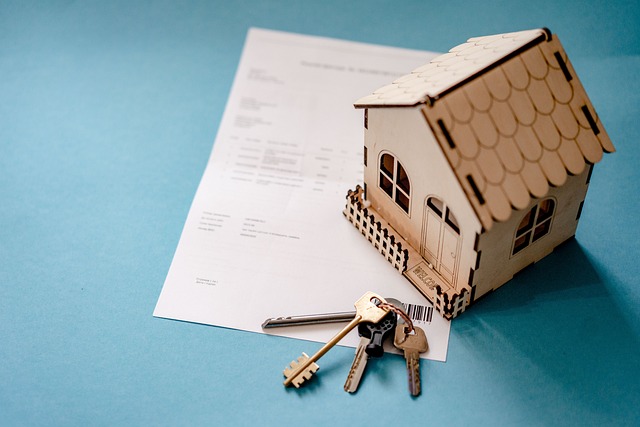Low down payments in real estate make homeownership more accessible for buyers with limited funds, offering strategies like FHA/VA loans and ARMs to navigate competitive markets. Weighing advantages and disadvantages helps prospective homebuyers make informed decisions tailored to their financial capabilities.
In today’s competitive real estate market, making a substantial down payment can seem like an insurmountable hurdle. However, low down payments offer a viable path to homeownership for many. This article explores the intricacies of low down payments in real estate, weighing the benefits and challenges, and equipping aspiring homeowners with strategies to secure their dream properties with minimal upfront investment.
Understanding Low Down Payments in Real Estate

Making a low down payment on a house is an attractive option for many prospective homebuyers, as it can significantly reduce the initial financial burden. In the realm of real estate, a down payment is typically the amount paid towards the purchase price of a property, usually in addition to mortgage financing. The concept of “low down” refers to an agreement where the buyer pays a smaller portion upfront compared to traditional standards. This strategy allows buyers to enter the market with less cash on hand while still securing their dream home.
In real estate transactions, low down payments are often seen as a game-changer for first-time homebuyers or those with limited funds. It enables individuals to become homeowners by requiring only a smaller percentage of the property’s value as an initial investment. This approach streamlines the buying process, making it more accessible and affordable, especially in competitive real estate markets where quick decisions are crucial.
Benefits and Challenges of Minimal Down Payments

Making a down payment on a property is a significant step in the real estate journey, and while a larger down payment has its advantages, there are also benefits to considering a lower one. In many cases, minimal down payments can open doors for first-time homebuyers or those with limited funds. It allows individuals to enter the market without the burden of a substantial upfront cost, making homeownership more accessible. This can be especially beneficial in today’s competitive real estate landscape, where rapid price increases might otherwise make it difficult for buyers to secure their dream homes.
However, there are challenges associated with low down payments. Lenders often charge higher interest rates for mortgages with smaller down payments, which can result in increased borrowing costs over the life of the loan. Additionally, a lower down payment may mean a larger remaining balance, potentially extending the time it takes to build equity and making future refinancings or large purchases more complicated. Nonetheless, understanding these challenges and weighing them against the advantages can help prospective buyers make informed decisions tailored to their financial capabilities.
Strategies for Securing Real Estate with Small Down Payments

Securing a piece of real estate, even with limited funds, is achievable through strategic planning and creative financing options. One popular approach for buyers with modest down payments is to explore government-backed loan programs designed to promote homeownership. These programs often provide low-interest rates and flexible qualification criteria, making them accessible to a broader range of borrowers. For instance, FHA loans allow for as little as 3.5% down payment, while VA loans offer even more benefits to eligible veterans and their spouses.
Additionally, some lenders offer adjustable-rate mortgages (ARMs) tailored for first-time homebuyers. These loans typically start with a lower interest rate for an initial period, providing buyers with the opportunity to build equity quickly. However, it’s crucial to understand the terms and potential adjustments in future rates. Working closely with a reputable mortgage broker who specializes in these programs can help navigate the process, ensuring you find the best option aligned with your financial goals when diving into the real estate market.






